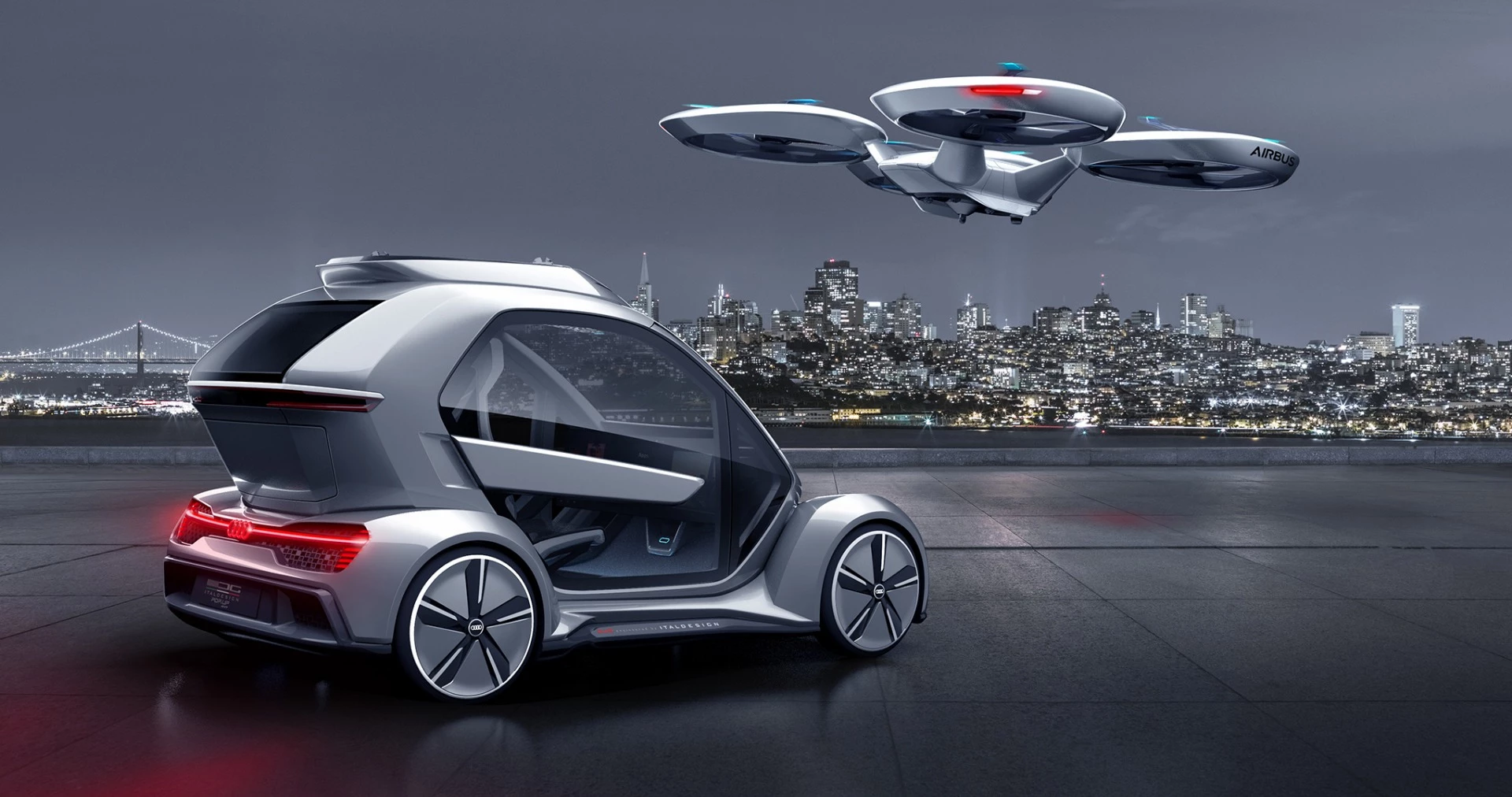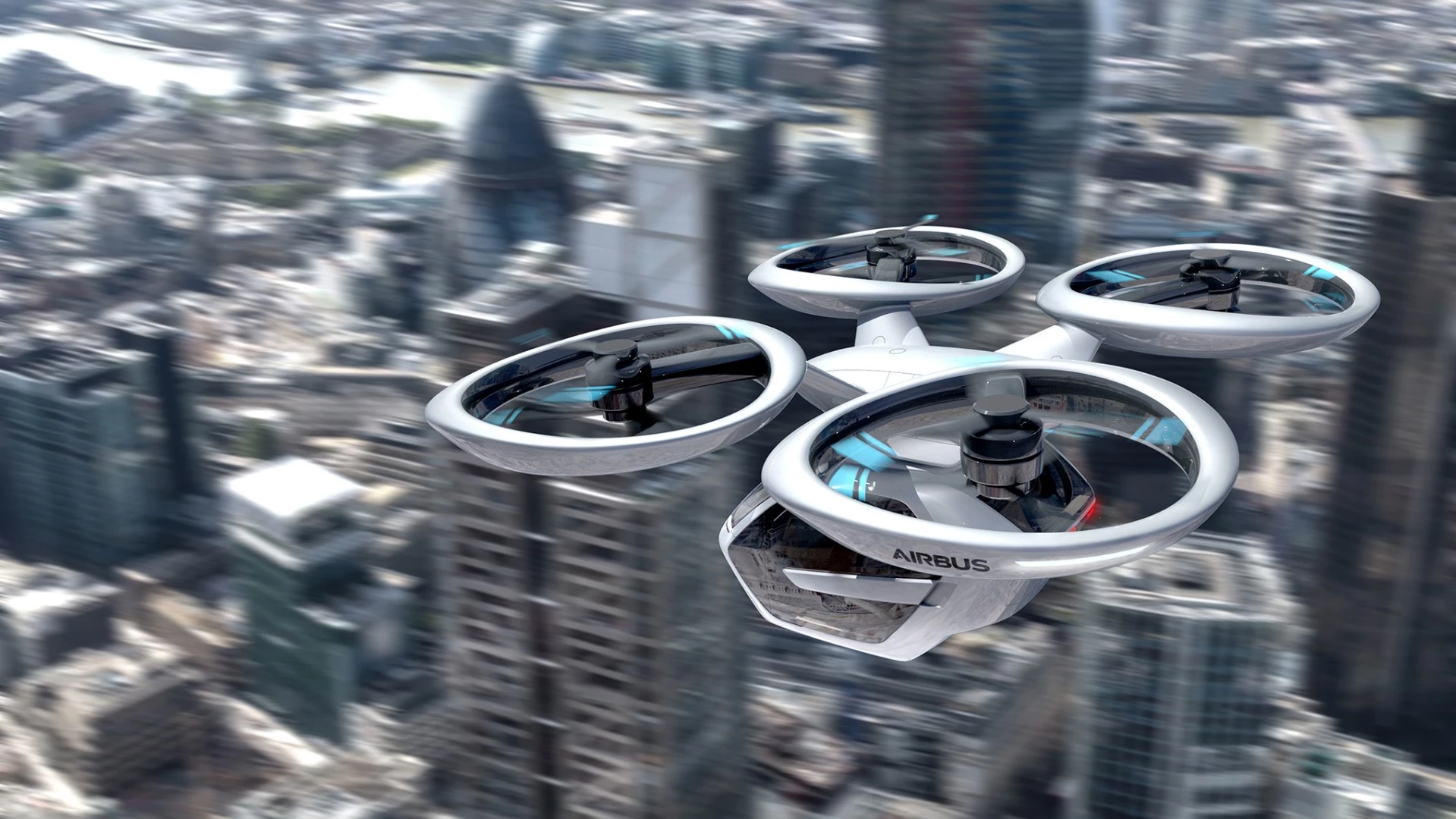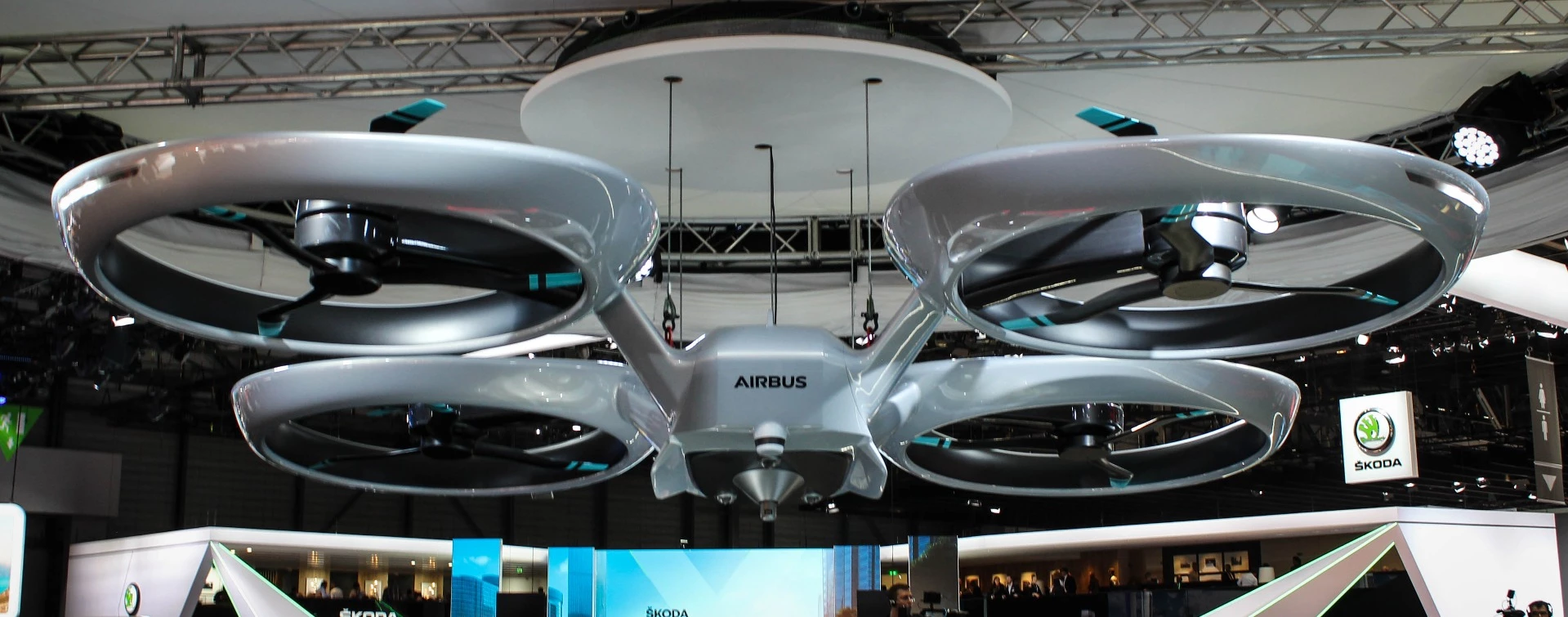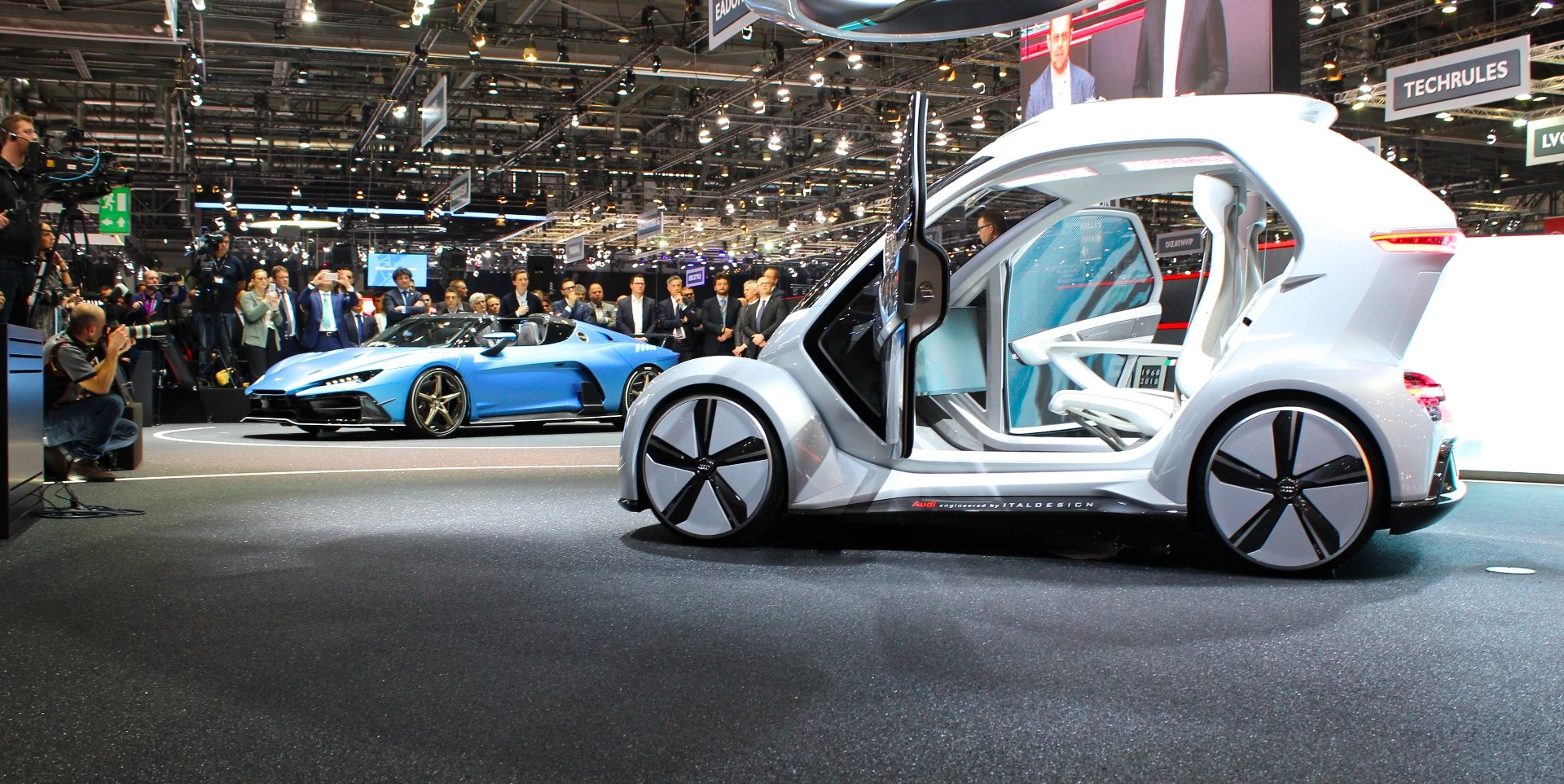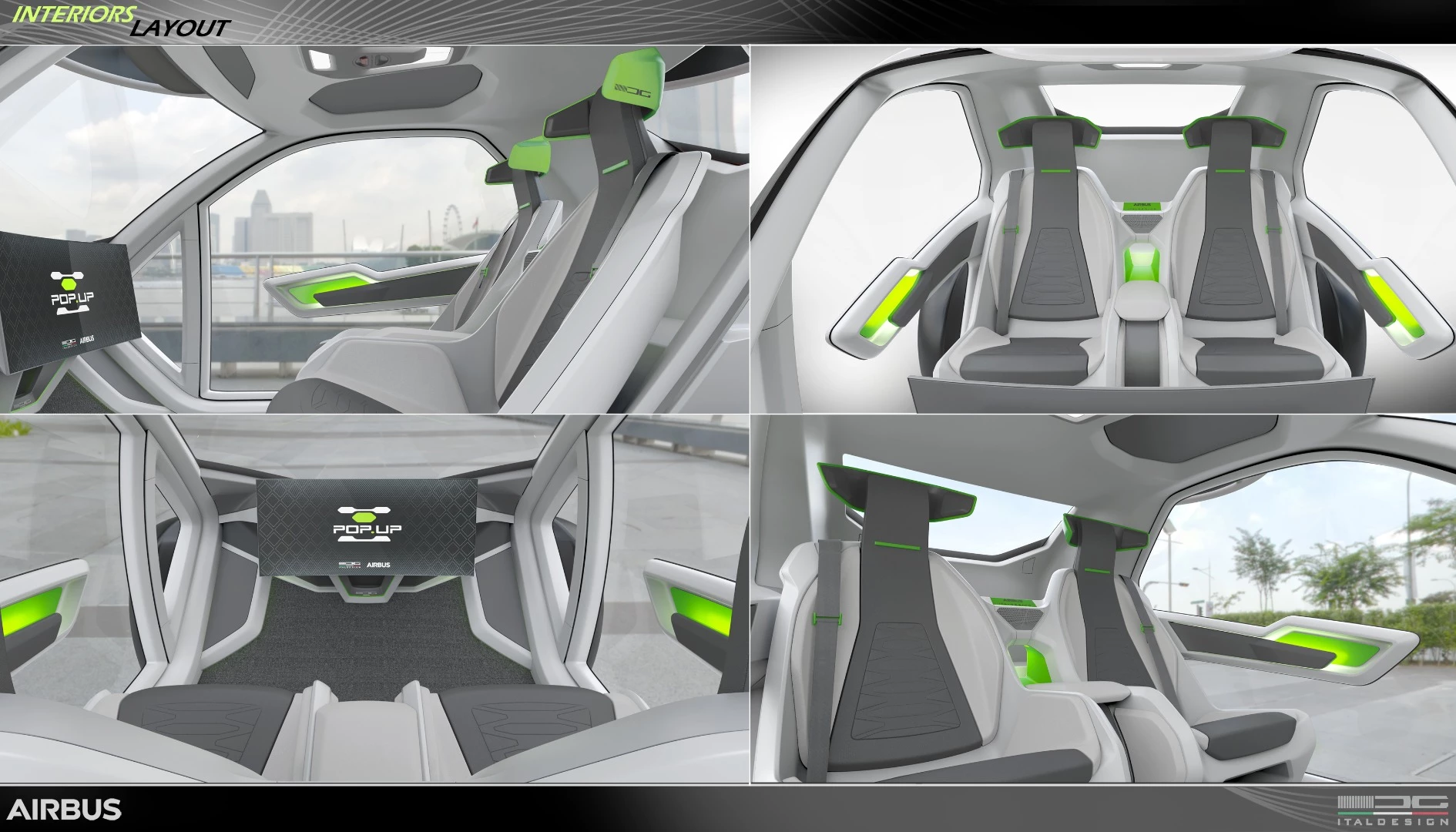Airbus has combined its aerial prowess with the ground-vehicle know-how of Italdesign and Audi to produce an audacious mobility concept called Pop.Up Next. As a successor to the original Pop.Up concept revealed at last year's Geneva Motor Show, the two-seat travel solution on display at this year's show can both drive autonomously on the road and lift into the air vertically, looking to beat city traffic by plucking people right out of the thick of it.
At the heart of the Pop.Up Next concept is a simple two-seat passenger cabin that can travel one of two ways. The simpler and more conventional route involves attaching to a 60-kW (80-hp) electric powered sled and assuming the role of a self-driving car. Top speed is listed at 100 km/h (62 mph) and it would rely on a 15-kWh battery for a 130-km (81-mi) range.
But let's say you find yourself caught in gridlock. Using the vehicle-sharing app that accompanies the Pop.Up Next, users can hail one of the system's air modules, which would be deployed from a charging station nearby, latch onto the vehicle's roof and lift the formerly frustrated commuter the hell outta there. The air module can fly 50 km (31 mi) on each charge of its 70-kWh battery, using eight electric motors to zip over cities at 540 km/h (336 mph).

Sounds simple right? Sure, with all sorts of technical and regulatory obstacles to speak of, it will be anything but. However, the ability to easily switch between transport modes when and where it's convenient to streamline urban mobility definitely sounds like a good idea on paper..
There isn't a substantial difference from a design viewpoint between the original Pop.Up and 2018's Pop.Up Next. Audi's participation is new, however, with the automaker bringing its autonomous vehicle and battery expertise to the party, while also working with Airbus to design the cabin's interior.
That includes a 49-inch touchscreen that incorporates eye-tracking and speech and facial recognition, along with redesigned seats that use a mix of aluminum framing and ultralight meshing to keep weight low. The designers do say that the Pop.Up Next weighs far less than the 2017 version.

They also claim to have reworked the aerodynamics and rotor ducts to improve performance and power consumption, and have integrated a new titanium locking mechanism to couple and decouple the modules. Ultimately, these would be identical for both the ground and air modules, using onboard sensors during approach to align three coupling points, though the finer details of this remain a work in progress.
The Pop.Up Next certainly seems pretty out there in terms of transport concepts, though Airbus and Italdesign share the belief that this kind of system could actually take flight within seven to 10 years. Airbus has been very active in the passenger drone space, recently test flying a full-scale version of its Vahana flying taxi, and autonomous driving technologies continue to come along in leaps and bounds.
In the meantime, we can just use concepts like the Pop.Up Next to imagine a future where common urban folk aren't limited to ground travel, and don't have to deal with traffic as a result. It is on show at Geneva Auto Show this week, where New Atlas is on the ground bringing you other crazy concepts, along with real-life vehicles that'll be hitting the showroom soon.
The video below shows how the concept would work.
Source: Audi

